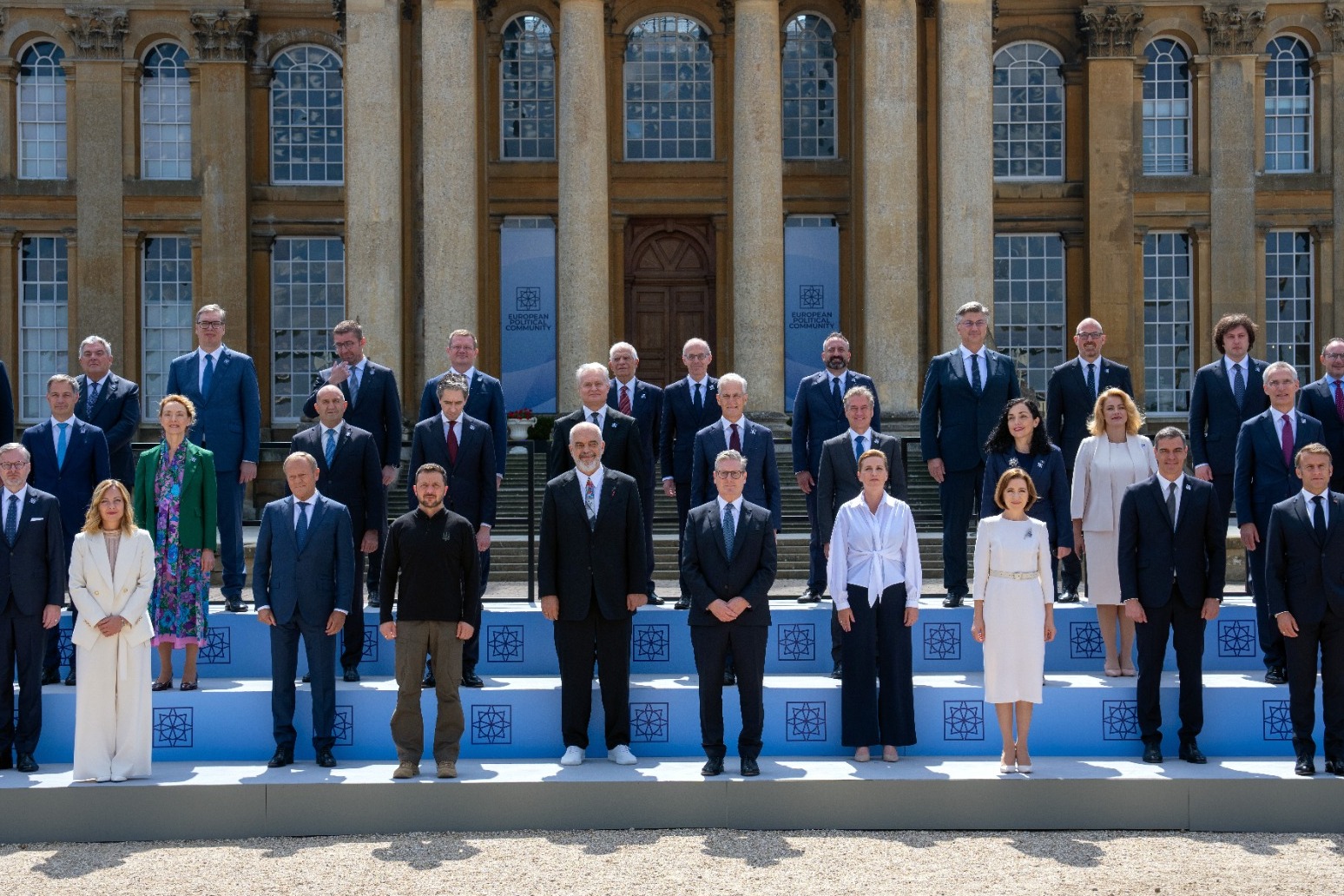
Starmer urges action on migrant ‘crisis’ and aid for Ukraine at European summit
Sir Keir Starmer urged European leaders to address the illegal migration “crisis” and to stand firm in support of Ukraine as he sought to strengthen the UK’s ties with the continent.
The Prime Minister hopes the European Political Community summit will provide an opportunity to “reset” the UK’s relations with its neighbours after the turmoil of the Brexit years.
Opening the summit at Blenheim Palace in Oxfordshire he also stressed his Government’s support for the European Convention on Human Rights after the Conservatives had flirted with the idea of pulling out of the agreement.
Sir Keir told Europe’s leaders the UK would be a “friend and a partner ready to work with you” and “not part of the European Union, but very much part of Europe”.
With his Government inheriting the challenge of small boats crossing the English Channel and Europe as a whole addressing the issue of migrants crossing the Mediterranean and land borders, Sir Keir said the leaders had to tackle people smugglers.
“It is now I think a crisis,” he said.
“As we speak, as we gather here, a criminal empire is at work in every country represented here today, profiting off human misery and desperation, prepared to send infants, babies, pregnant mothers, innocent people to their deaths.
“And last week four more souls, and actually last night another one, were lost in the waters of the English Channel – a chilling reminder of the human cost of this vile trade.”
He said the summit was an opportunity to “set a new path on illegal migration” with increased co-operation.
“We must combine our resources, share intelligence, share tactics, shut down the smuggling routes, and smash the gangs.”
Sir Keir said the “root causes” driving people from their homes, such as conflict, climate change and extreme poverty also needed to be addressed.
On the UK’s approach under his new administration, Sir Keir said: “We will approach this issue with humanity and with a profound respect for international law.
“And that’s why we scrapped the unworkable Rwanda scheme on day one. And it’s why we will never withdraw from the European Convention on Human Rights.”
The Prime Minister, flanked by Volodymyr Zelensky, said the first task of the European Political Community (EPC) is to “confirm our steadfast support for Ukraine”.
“Every day Ukraine fights affects not just the Ukrainian people, but the European people,” he said.
“A continent where our belief in freedom, democracy and the rule of law was hard won and that wants to live in peace.”
Mr Zelensky said he would “sign an intergovernmental agreement with the UK on support for the Ukrainian defence and industrial complex, discuss future defence co-operation, and expand our defence capabilities”.
“Since the first days of the full-scale invasion, the UK has been one step ahead in its determination to support Ukraine. This is the kind of resolve we need to stop Russian terror,” he said.
The summit provides an early opportunity for Sir Keir to press ahead with efforts to build closer ties with Europe, particularly the European Union’s 27 members.
He wants to strike a security pact with the EU and also seeks to address some of the trading problems under the current Brexit deal.
The EU’s foreign policy chief, Josep Borrell, said: “The new Labour Government has signalled its intention to reset its relationship with the European Union and to seek more structured co-operation with the EU in the field of foreign, security and defence policies.
“We welcome the new tone of the British Government and we look forward to engaging with it. We are ready to reinforce our foreign and security policy co-operation.”
The gathering at Blenheim Palace, birthplace of Winston Churchill, is a more informal affair than many international summits.
The leaders will attend a reception hosted by the King in the palace’s Long Library, which has walls lined by more than 10,000 books,
Sir Keir will have a series of face-to-face talks with key figures including a dinner with Emmanuel Macron and a meeting with Polish counterpart Donald Tusk – who was president of the European Council at the height of the Brexit drama – as he attempts to strengthen ties with the continent.
The EPC was the brainchild of French President Mr Macron and involves 20 non-EU nations including the UK as well as the 27-strong EU bloc.
Published: by Radio NewsHub